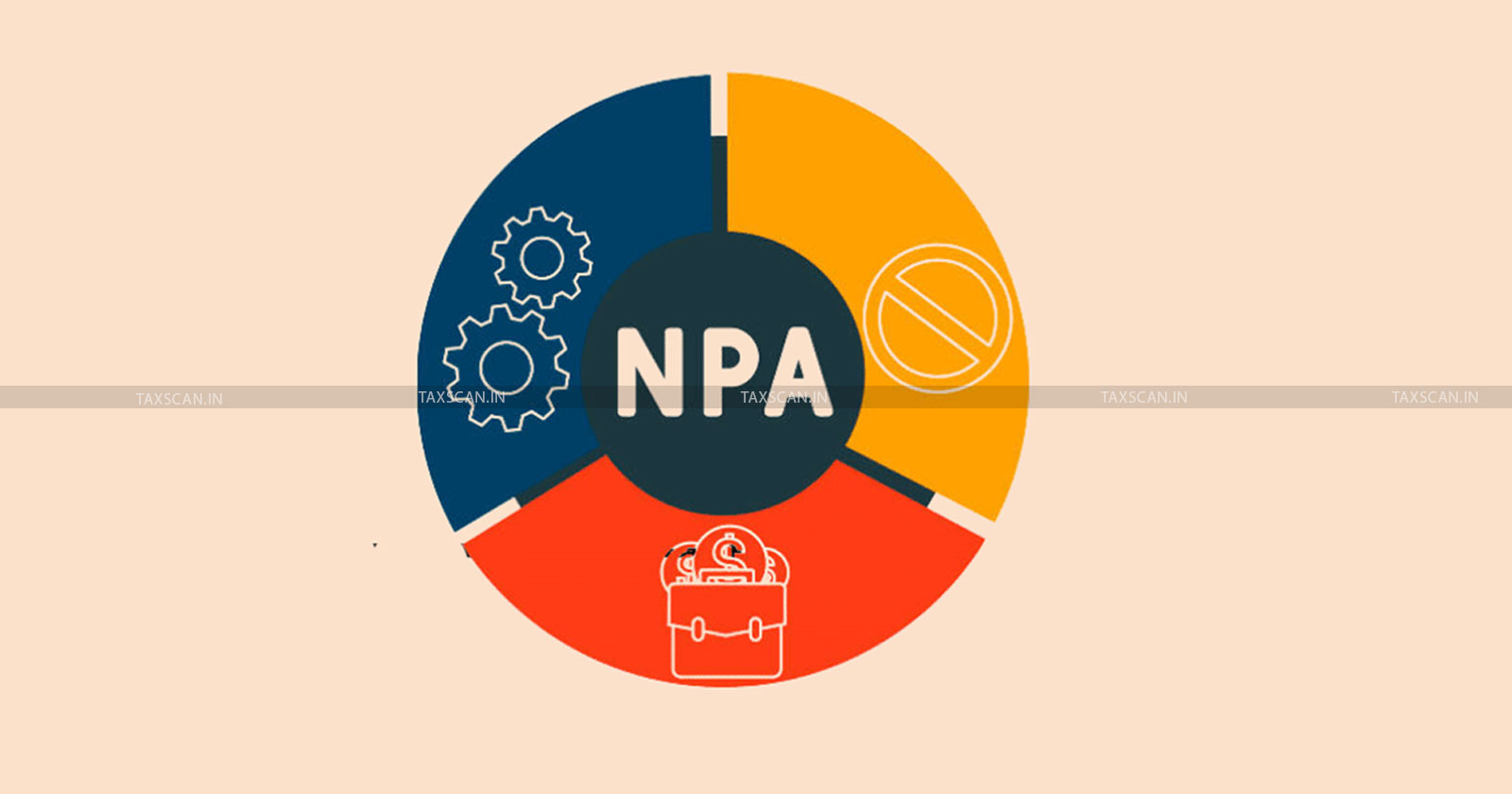Declaration of Loan Account as NPA can be Considered as Date of Default to File Petition u/s 7 of IBC: NCLAT Rules in Favour of UBI [Read Order]
The tribunal found that the borrower is liable to undergo insolvency resolution process and the application under Section 7 filed by the Bank cannot be thrown out on the bar of Section 10A

Declaration Of Loan – Account Declaration Of Loan Account as NPA – NPA – NCLAT – NCLAT Rules – NCLAT Rules In Favour of UBI – Loan Account – Non-Performing Assets – Insolvency Bankruptcy Code – IBC – Taxscan
Declaration Of Loan – Account Declaration Of Loan Account as NPA – NPA – NCLAT – NCLAT Rules – NCLAT Rules In Favour of UBI – Loan Account – Non-Performing Assets – Insolvency Bankruptcy Code – IBC – Taxscan
In a ruling in favour of Union Bank of India (UBI), the New Delhi bench of the National Company Law Appellate Tribunal (NCLAT) has held that date of declaration of the loan account/ debt as Non-Performing Assets(NPAs) can be considered as the date of default to enable the Financial Creditor to initiate action under Section 7 of the Insolvency Bankruptcy Code(IBC), 2016.
The Corporate Debtor, M/s. I World Business Solutions Pvt. Ltd took credit facilities from the erstwhile Andhra Bank which is now known as Union Bank of India. Credit facilities contained cash credit, bank guarantees and emergency credit lines at the time of Pandemic. The debt was restructured and renewed several times. But the corporate debtor failed to discharge its obligations. On March 31, 2021, the account of the corporate debtor was classified as NPAs.
Become PF & ESIC Pro: Basic to Advance Course - Enroll Today
The UBI issued a notice under section 13(2) of the SARFAESI Act and also filed a petition under section 7 of the code. In response, the corporate debtor argued that the debt for which the petition was filed fell under the prohibited period under section 10A for which petition cannot be entertained. However, the petition was admitted by the AA on the ground that date of default was March 31, 2021.
The appellant argued that the sanction of Funded Interest Term Loan of Rs. 3,21,63,256/- on 16.09.2020 was during 10A period and any default in the aforesaid facility cannot be a ground to initiate any application under Section 7.
Become PF & ESIC Pro: Basic to Advance Course - Enroll Today
Further contended that on 25.03.2021, when sanction letter was issued by the Bank there can be no default on the part of the borrower. Issue of sanction letter on 25.03.2021 fully proves that there was no default on 25.03.2021 and there was no occasion to declare the account NPA on 31.03.2021. Date of default, if any, was during Section 10A period and application was clearly barred by Section 10A.
The respondent stated that maximum period to repay the amount under FITL facility was 31.03.2021. It was argued that as per RBI Guidelines, the account is classified as NPA not account wise but borrower wise, hence, on account of continuous default on any one account, the account would be classified as NPA. NPA declaration as on 31.03.2021 was in accordance with the RBI guidelines.
Become PF & ESIC Pro: Basic to Advance Course - Enroll Today
The account was overdue as on 01.03.2020 and after declaration of the account as NPA, there was continuous default subsequent to Section 10A period. There being default by the Corporate Debtor prior to 01.03.2020 and also subsequent to 10A period, there is no error committed by the Adjudicating Authority in admitting Section 7 application.
The tribunal observed that even prior to Section 10A period, there is clear acknowledgment by the corporate debtor that there is outstanding amount. During 10A period, two facilities were extended first on 16.09.2020 funded interest term loan (FITL) of Rs.3,21,63,265/- which was repayable by 6th monthly instalment commencing from September 2020.
Become PF & ESIC Pro: Basic to Advance Course - Enroll Today
The bench of Justice Ashok Bhushan (Judicial Member) and Barun Mitra (Technical Member) observed that default by the borrower was even before the 10A period which is clear from acknowledgment letter dated 30.08.2019, as extracted above. Section 7 application was filed on 24.09.2022 and the amount of interest calculated from 31.03.2021 till the date of filing of the application also even if principal amount is not included was much more than the threshold amount for initiating CIRP against the corporate debtor.
The tribunal found that the borrower is liable to undergo insolvency resolution process and the application under Section 7 filed by the Bank cannot be thrown out on the bar of Section 10A. There being default prior to Section 10A period and subsequent to 10A period, as noted above, order of the Adjudicating Authority admitting Section 7 application need no interference.
Become PF & ESIC Pro: Basic to Advance Course - Enroll Today
While dismissing the appeal, the tribunal observed that it is well settled that at the time of admission of Section 7 application, Adjudicating Authority is not called upon to determine the amount of claim of the Financial Creditor who initiated Section 7 application, and those issues are to be left for Resolution Professional to be determined at the time of collation and admission of the claim.
In view of the legal position, the bench held that default during the 10A period cannot be the basis for any proceeding under Section 7 only to observe that any amount defaulted during 10A period need not be included in the claim admitted by the Appellant.
To Read the full text of the Order CLICK HERE
Support our journalism by subscribing to Taxscan premium. Follow us on Telegram for quick updates


